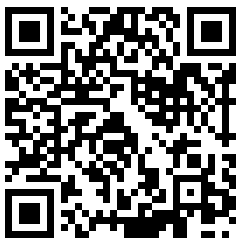راهبردهای هوشمندسازی باغ کتاب تهران از طریق مدل برنامهریزی راهبردیکمی ( QSPM)
چکیده: با ازدیاد سریع جمعیت شهرنشین در تمام جهان، شهرها با خطرات، تشویشها و مشکلات مختلف روبهرو هستند. شهرهای هوشمند ادعا میکنند که یک مدل موثر، همراه با موقعیتهای خلاقیت و نوآوری و کیفیت بالای زندگی و تأثیر کم بر محیط زیست، ارائه می دهند. باغ کتاب تهران، با امکانات گسترده، همه روزه میزبان بازدیدکنندگان زیادی در مقیاس شهری و فراشهری می باشد. از این رو یک برنامهریزی جامع و با رویکردی جدید برای تصمیمگیری مدبرانه تر در این فضای شهری مهم، حیاتی است. پژوهش حاضر با رویکرد هوشمندسازی سعی دارد تا از طریق روش برنامه ریزی راهبردی کمی (QSPM)، تدابیری برای هوشمند ساختن باغ کتاب تهران در منطقه فرهنگی-گردشگری عباس آباد، ارائه نماید که یک فضای مطلوب شهری را برای شهروندان به ارمغان میآورد و همچنین با اصول توسعه پایدار نیز هماهنگ میباشد. بنابر هدف ذکر شده، سوال اصلی متوجه پژوهش این است که راهبردهای هوشمندسازی باغ کتاب تهران شامل چه مواردی است و اولویت بندی آنها چگونه است. همچنین در خلال پژوهش به شناخت معیارها و شاخصهای جهانی شهرهوشمند نیز پرداخته میشود. این پژوهش از حیث هدف به عنوان یک تحقیق کاربردی و از حیث روش به عنوان یک تحقیق پیمایشی محسوب میشود و برای تکمیل ماتریس های به کار رفته، چندین مصاحبه با کارشناسان ذیصلاح صورت گرفته است. نتایج پژوهش حاکی از تعیین شش راهبرد مجزا در هوشمندسازی باغ کتاب دارد. این راهبرد ها عبارت اند از توسعه سامانه های جامع گردشگری و رفاهی، افزایش روش های جابهجایی متنوع و هوشمند، برنامه پارکینگ هوشمند، افزایش استفاده از برنامه های اطلاع رسانی و راهنما، افزایش خدمات رفاهی در فضای باز و توسعه سامانه های مشارکتی و تبادلی. دو مورد اول با کسب بیشترین امتیاز جذابیت (تاثیرگذاری) در هدف پژوهش ( هوشمندسازی باغ کتاب تهران)، به ترتیب برابر با 4.569 و 3.511 به عنوان اولویت اول راهبردهای هوشمندسازی در این مجموعه تعیین گردیدند.
واژگان کلیدی: شهر هوشمند، راهبردهای هوشمندسازی، باغ کتاب تهران، مدل برنامهریزی راهبردیکمی، QSPM
Smartening strategies of Tehran Book Garden through Quantitative Strategic Planning Model (QSPM)
Abstract: With the rapid increase of urban population all over the world, cities are facing various dangers, worries and problems. Smart cities claim to offer an effective model, with opportunities for creativity and innovation, high quality of life and low impact on the environment. Tehran Book Garden, with its extensive facilities, hosts many visitors every day on an urban and suburban scale. Therefore, a comprehensive planning with a new approach is vital for more prudent decision-making in this important urban space. The current research, with the approach of making smart, tries to provide measures to make the book garden of Tehran in the cultural-tourism area of Abbas Abad, through the method of quantitative strategic planning (QSPM), which brings a favorable urban space for the citizens, and also with The principles of sustainable development are also harmonized. According to the mentioned goal, the main question for the research is what the strategies of Tehran Book Garden include and how they are prioritized. Also, during the research, the international criteria and indicators of the smart city are also discussed. This research is considered as an applied research in terms of purpose and as a survey research in terms of method, and several interviews were conducted with competent experts to complete the used matrices. The results of the research indicate the determination of six separate strategies in making the book garden more intelligent. These strategies include the development of comprehensive tourism and welfare systems, increasing diverse and smart transportation methods, smart parking program, increasing the use of information and guide programs, increasing outdoor welfare services and developing cooperative and exchange systems. The first two items with the highest attractiveness (influence) points in the research objective (intelligence of Tehran's Book Garden), respectively equal to 4.569 and 3.511, were determined as the first priority of intelligentization strategies in this collection.
Keywords: Smart city, smart strategies, Bagh Kitab Tehran, quantitative strategic planning model, QSPM


